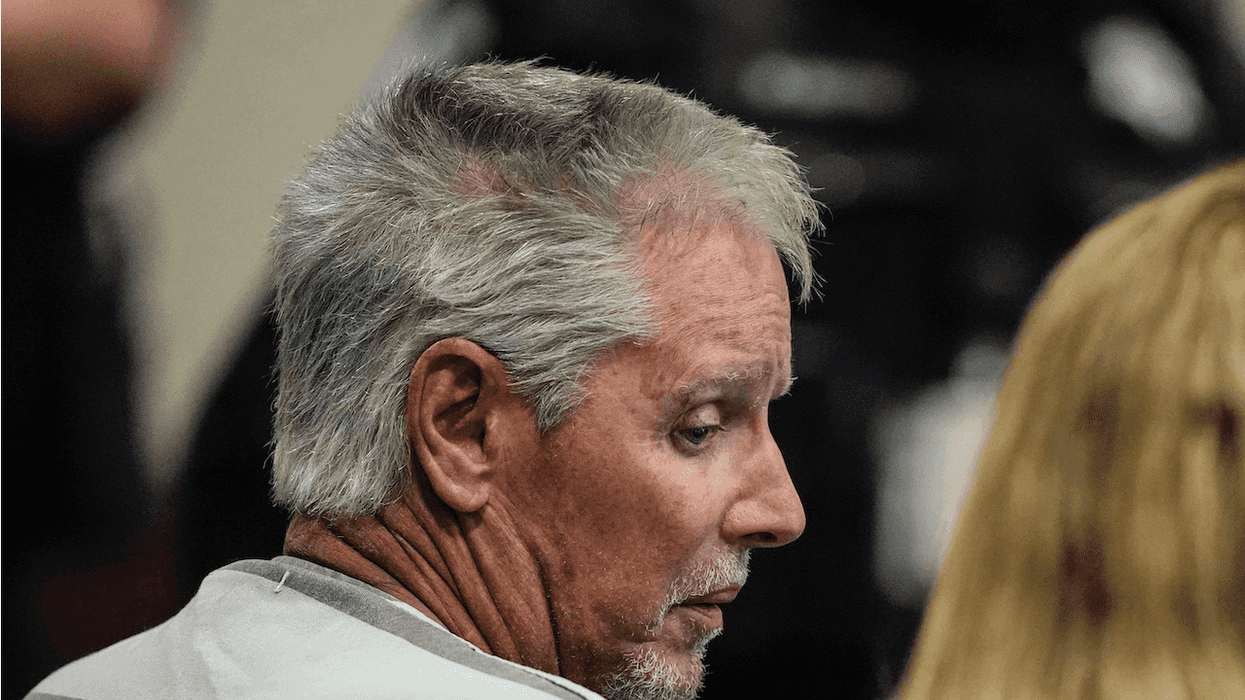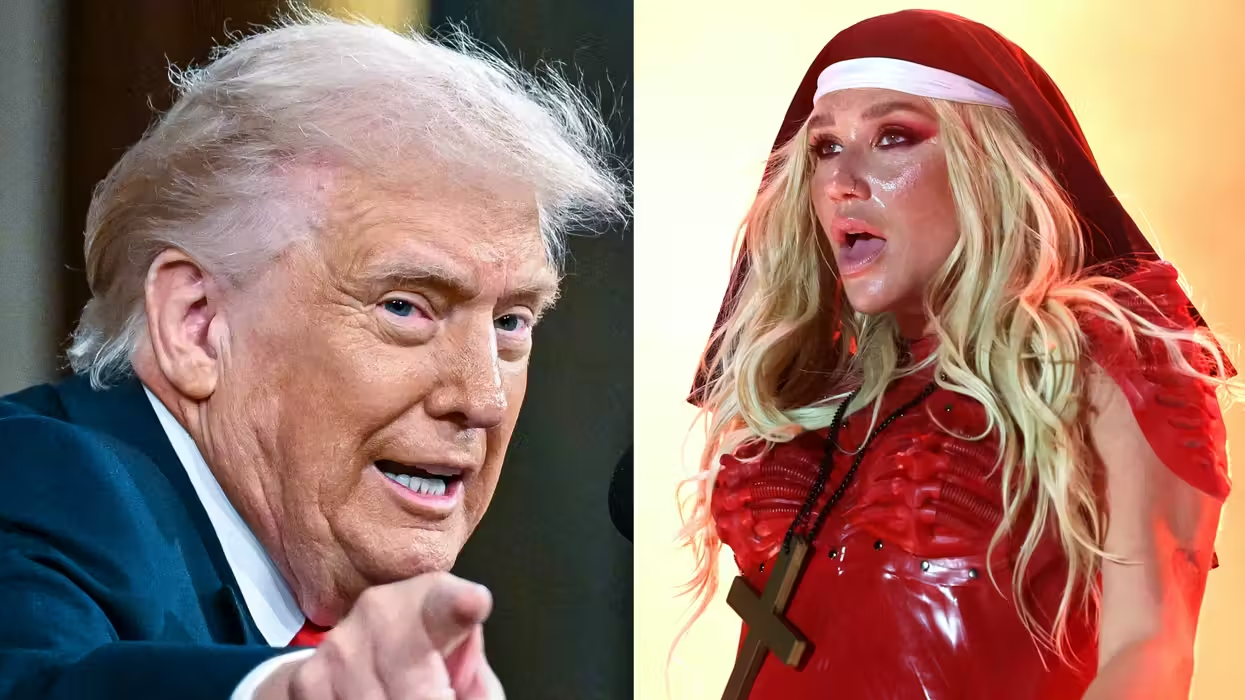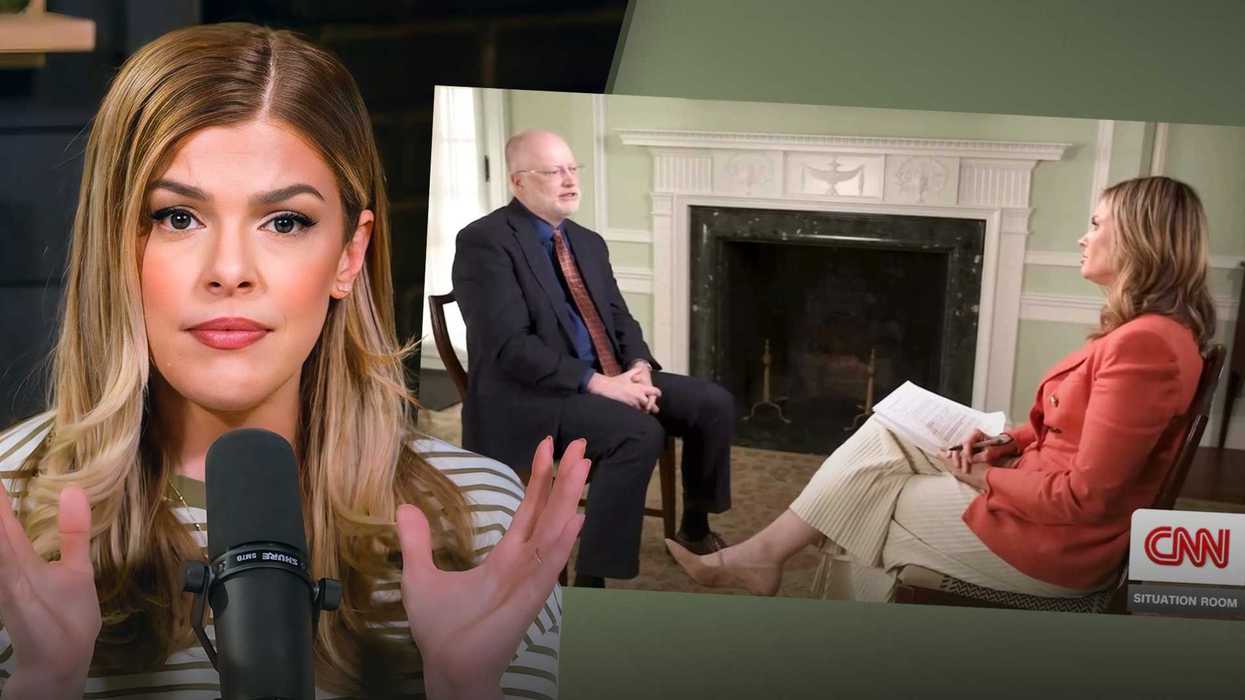
© 2026 Blaze Media LLC. All rights reserved.
The Virginia Convention of 1788 epitomized the age-long battle for liberty.
Glenn Beck’s new book, "Miracles and Massacres," is about helping people connect with the true, untold history of America. In chapter three, Glenn tells the story of the Virginia Ratifying Convention of 1788, a crucial meeting on the Constitution pitting the likes of the acerbic Anti-Federalist Patrick Henry, supporter of a weaker decentralized national government, against those supporters of a stronger centralized national government, like diminutive but outspoken Federalist James Madison.
-
Imagine a time when the federal government was considered by many to be too weak? As preposterous as that sounds right now, it was actually the biggest problem we faced during the late 1780s.
Life under the Articles of Confederation for seven years had left our young country teetering on the brink of anarchy. Sparked in part by the dire message sent by Massachusetts farmers during Shays’ Rebellion, leaders from 12 states (Rhode Island abstained) convened at Independence Hall in Philadelphia beginning in June 1787 to hash out a new way forward. By September, they’d emerged from Philadelphia with a Constitution.
Then, they had to return to their home states to try and sell it to the American people.
Virginian Patrick Henry, he of “Give me liberty, or give me death!” fame, loved his nation but detested the national government that stood before him under the Constitution. Virginian James Madison also loved his nation, but was the chief proponent of the Constitution (he was one of its key authors and advocates through the Federalist Papers)—a document that, if ratified, would fundamentally alter the relationship between Americans and their government. In many ways the entire national debate over the Constitution was personified by the back and forth of these two men during the Virginia Convention.
 Independence Hall. (Credit: Matt Rourke/AP)
Independence Hall. (Credit: Matt Rourke/AP)
In "Miracles and Massacres," the heartfelt principles that meant life or death to these men and, by extension, the nation itself, come alive. You feel the verbal left and right hooks and jabs as these profound thinkers slug it out over the fate of the country. Even though you know how the story ends (SPOILER ALERT: for those in Common Core, the Federalists won), you will sit on the edge of your seat as the debate unfolds.
[sharequote align="right"]The Convention...was a microcosm of the age-long struggle between the individual and the state.[/sharequote]
The Convention, which took place over 26 hot June days in 1788, was a microcosm of the age-long struggle between the individual and the state. Yet it ultimately represented true compromise. Not the euphemistic “compromise” we’ve come to expect today, but real, lasting compromise that forced both sides to make extraordinarily difficult decisions.
 Federalists Papers authors: Alexander Hamilton, James Madison, and John Jay
Federalists Papers authors: Alexander Hamilton, James Madison, and John Jay
The debate in Virginia, like the debate that was taking place across other states in the Union, was primarily focused on the nature of the governmental system itself: the size and scope of the Federal government; how its powers were to be delegated and diffused; who would act as a check and balance on those powers; and how the people’s natural rights were to be protected. Even if we took the most cynical and revisionist perspective as to the true motivations of those who participated in the debate, the end result of their maneuverings was a government of negative powers, with internal checks and balances designed to create gridlock and make change difficult, and the ability for the people to revolt at the ballot box or after exhausting other options at a subsequent convention.
These weren’t debates between Bolsheviks and Mensheviks, arguing over how many months out of the year people must toil to pay off their “fair share” of taxes, how punitive a regulation should be or how much money should be redistributed from the individual to a given industry under the guise of “investment.” No, these were debates between people who, in modern parlance, would largely be called libertarians and conservatives, though there were certainly some with other agendas (the Federalists themselves readily admitted that men were not angels, an insight that seems to have eluded historical and modern-day Progressives).
[sharequote align="center"]Nothing would stop America from devolving into anarchy or tyranny without a virtuous people.[/sharequote]
The Founders wanted to create a system superior to all those that came before it. They did this by beginning with two fundamental premises: First, that man’s nature is unchanging; and second, that any system in which man would govern his fellow man had to first ensure that checks and balances would exist on the governing.
James Madison eloquently made these points in Federalist #51:
“In framing a government which is to be administered by men over men, the great difficulty lies in this: you must first enable the government to control the governed; and in the next place oblige it to control itself.”
When the first pilgrims landed in America, it would have been unthinkable that they would ever revolt against their European brethren to form a free nation. It would have perhaps been equally unthinkable to conceive of the fact that this struggling nation could then go on to create a document that would change the fate of mankind for centuries to come.
In many ways, the Constitution was a miracle: comprehensive, yet brief: free, yet structured; built on Judeo-Christian ethics, Aristotle, the Magna Carta, John Locke and centuries of human experience; imbued with civic virtue; animated by the spirit of the incomparable Declaration of Independence; and agreed upon by men with closely-held and often starkly different beliefs.
[sharequote align="center"]A breakdown in morality—a trait that would separate liberty from license could render the Constitution meaningless.[/sharequote]
On the other hand, as both sides of the debate knew, nothing would stop America from devolving into anarchy or tyranny without a virtuous people. A breakdown in morality—a trait that would separate liberty from libertinism or license—could render the Constitution meaningless. If the Anti-Federalists could speak today, they would likely respond with a resounding “I told you so!” in the face of the $17,193,179,560,195 in public debt (as of this moment of writing) we’ve incurred. They are rightfully rolling over in their graves at the fact that their worst fears have largely been realized.
In 1787, perhaps anticipating the likes of a future President Obama, "Brutus Junior" had this to say in Anti-Federalist Paper #38 on the push to ratify the Constitution itself:
"I deny that we are in immediate danger of anarchy and commotions. Nothing but the passions of wicked and ambitious men will put us in the least danger on this head. Those who are anxious to precipitate a measure will always tell us that the present is the critical moment; now is the time, the crisis is arrived, and the present minute must be seized. Tyrants have always made use of this plea; but nothing in our circumstances can justify it."
At Virginia, this push for radical change—and quickly, lest the nation dissolve into chaos—was met with inertia from those like Patrick Henry who feared in a stronger national government “…a dangerous servant and a fearful master,” as ironically, George Washington, a supporter of the new Constitution defined government. Read Chapter 3 of “Miracles and Massacres” to learn how the advocates of change made their case against the stalwart and cautious Anti-Federalists, and won, forever altering the course of the nation and the history of the world.
To read the full, riveting account of the Virginia Convention, along with 11 other epic and untold stories from American history, check out Glenn Beck’s new book, “Miracles and Massacres.” You can find story summaries, excerpts and audio samples by visiting here.
–
TheBlaze contributor channel supports an open discourse on a range of views. The opinions expressed in this channel are solely those of each individual author.
Want to leave a tip?
We answer to you. Help keep our content free of advertisers and big tech censorship by leaving a tip today.
Want to join the conversation?
Already a subscriber?
Ben Weingarten is a writer, commentator, and editor at large at RealClearInvestigations. He is a senior contributor at the Federalist and writes columns for Newsweek and the Epoch Times.
Ben Weingarten
Ben Weingarten is a writer, commentator, and editor at large at RealClearInvestigations. He is a senior contributor at the Federalist and writes columns for Newsweek and the Epoch Times.
more stories
Sign up for the Blaze newsletter
By signing up, you agree to our Privacy Policy and Terms of Use, and agree to receive content that may sometimes include advertisements. You may opt out at any time.
Related Content
© 2026 Blaze Media LLC. All rights reserved.
Get the stories that matter most delivered directly to your inbox.
By signing up, you agree to our Privacy Policy and Terms of Use, and agree to receive content that may sometimes include advertisements. You may opt out at any time.






